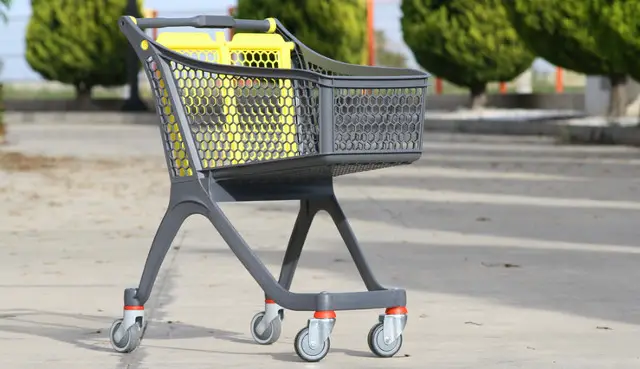Daft Old Duffer returns. Guest opinion articles do not necessarily reflect the views of the publication. Ed
It is an undeniable truth about any business that it has to grow or perish. Standing still is not an option
Simply because any organisation not bothering to attract new customers, seek new contracts, explore new opportunities, soon gains the reputation of one not worth bothering with. Especially with the ever-present newer and hungrier rivals circling all around.
Such I believe is the dilemma now facing the various supermarket chains.
Supermarkets began life, of course, in the hope that, by allowing shoppers to select their own items from the shelves instead of paying an assistant to wait on them, overheads could be cut and the goods sold at a lower price.
It was a gamble that paid off in spades. Not only were housewives happy to forego being waited on in order to have a wider choice at a few pence less, they were even prepared to abandon the High Street and travel to some out of the way industrial estate in order so to do.
Decimation of high street shopping
Thus was the normal, everyday grocery shop we were all used to, decimated, as Tesco and Sainsbury led the way to the nearest industrial warehouse with space for parking. And of course matters did not rest there.
Realising the apparently boundless opportunities offered by this new way of earning money, these early pioneers noted their low-rent remaining spaces and looked round for other goods to sell, other customers to entice their way.
Food and fuel
The first was, naturally enough the driver. Weird as it seemed at the time, not only could you purchase all your groceries at just the one stop, you could purchase your petrol at the same time.
Who’d have thought it – petrol and potatoes right next to each other? What would they think of next?
And the kitchen sink
The answer of course was just about everything. Bed linen and underwear, fruit and veg, baby milk and nappies newspapers and magazines, light bulbs and notepads – all cheek by jowl with cornflakes and tea and butter, for goodness sake!
Nor did it stop there. As the traditional high street shopping parade withered away, everything you could possible seek there was now available in the out of town supermarket.
Even to an opticians, a chemists, a café, a baker. Anything in fact that could turn a profit.
Until, inevitably, the everyday needs of everyone was satisfied and the gush of profits, still enormous, no longer increased year on year. Indeed, with increasing competition from rival stores, it even began to falter.
What next?
Which spelt disaster for the blokes in charge. They are, after all, not shopkeepers gaining satisfaction by providing a good service, they are businessmen with their noses forever pointed in the direction of increasing profits.
They began to try gimmicks.
When, to their astonishment customers showed their willingness to pay more for veg with the legend ‘organic’ on the label, they plunged wholeheartedly into that. When bulk-buying shops became a craze they installed bins containing loose cornflakes, sugar, biscuits, currants, anything.
Until each fad died in turn and the shops involved closed down.
Back to the High Street
Now they are returning to the High Street, with their down-sized local supermarkets, in an attempt to scrape up those who can’t or won’t attend their superstores.
And there is perhaps one other way to go. A way recently hinted at by the devotees of Waitrose.
Up-scaling
These posh-car employers of the daily who does the housework, the nanny who looks after the kids, are being discombobulated by an influx of the ‘common folk’ into their discreetly costly domain.
Attracted, it appears, by the unfortunate offer of free coffee for all regular clients, the holy aisles are becoming over-run by women who arrive in cars all of three years old, natter loudly about getting back to do the washing-up, and appear to think their kids have a right to be seen and heard.
Not at all acceptable to the consumers of bat-poo coffee beans, shark bowel pate and tiger placenta broth. All for sale at some ridiculous mark-up, wrapped and labelled exotically and of course not supposed to be available to the ‘common run’.
Exclusively yours …
Yet their cries of outrage must surely inspire the Tesco and Sainsbury gang. Expect to see then, in the not too distant future, a discreet section tacked onto the end of your supermarket. Perhaps with its own fenced- off section of car park. A section reserved for the brandishers of the gold card, the arrivers in Rollers, Bentleys, Cayennes.
A section discreetly patrolled by quiet yet firm men in dark suits offering much the same goods as everywhere else in the shop, but in addition a range of rarities labelled in some foreign language and priced at a level no normal housewife would dream of paying. And after that branch of the market has been plundered–who knows?
Personally, I’ve swapped to Iceland.





